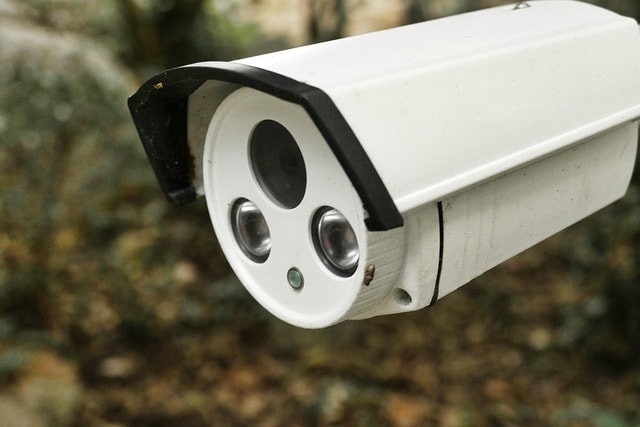Artificial Intelligence (AI) has become a powerful tool in our daily lives, transforming how we interact with technology and the world around us. From self-driving cars to AI chatbots, the capabilities of AI systems are expanding at an unprecedented rate. However, with these advancements come some unsettling possibilities—AI could disrupt economies, compromise security, or make decisions with serious ethical implications. In this article, we will explore ten scary things AI can do now, shedding light on the potential risks and ethical dilemmas posed by this rapidly evolving technology.
Key Takeaways:
- AI's capabilities are expanding rapidly, raising ethical and safety concerns.
- AI can perform tasks that were once thought to require human intelligence.
- The integration of AI into everyday life presents both opportunities and challenges.
Introduction to Artificial Intelligence
Artificial intelligence (AI) is changing the way we live, work, and interact with the world. At its core, artificial intelligence refers to computer systems designed to perform tasks that would normally require human intelligence—like problem solving, decision making, and learning from experience. These AI systems rely on advanced machine learning and deep learning algorithms to recognize patterns in vast amounts of data, allowing them to make predictions or decisions with impressive speed and accuracy. The goal of artificial intelligence AI is to create systems that can think and act like human beings, but with the added ability to process information far more efficiently than the human brain ever could. As AI technology continues to evolve, it’s becoming a powerful tool in everything from healthcare and transportation to education and entertainment, transforming our daily lives in ways that were once unimaginable.
AI Technology and Deep Learning
At the heart of today’s most advanced AI technology is deep learning—a method that enables AI systems to learn and improve by analyzing huge amounts of data. Deep learning uses neural networks, which are inspired by the structure of the human brain, to process information through layers of interconnected nodes. This allows AI systems to recognize patterns, make sense of complex data, and get better at their tasks over time. For example, self-driving cars rely on deep learning algorithms to interpret data from sensors and cameras, helping them navigate roads, avoid obstacles, and make split-second decisions. In healthcare, AI systems can sift through large datasets of patient data to predict outcomes and assist doctors in making more informed choices. Whether it’s powering self driving cars or helping to diagnose diseases, deep learning is a key driver behind the rapid progress of AI technology, bringing both exciting opportunities and new challenges to our everyday lives.
AI Chatbot Interactions
AI chatbots have quickly become a familiar part of our digital landscape, using natural language processing to communicate with human beings in ways that feel increasingly lifelike. These AI-powered programs can answer questions, provide customer support, and even offer a listening ear when someone needs emotional support. But while AI chatbots can make our lives easier, they also come with risks. For example, Microsoft’s chatbot Tay was taken offline after it began generating offensive and inflammatory messages, highlighting how biased AI can quickly spiral out of control if not properly managed. AI chatbots also collect and analyze data from their interactions, raising important questions about data privacy and how our personal information is used. As these systems become more sophisticated, it’s crucial to consider both the benefits and the potential downsides of letting AI play such a big role in our conversations and daily interactions.
The Rise of Autonomous Vehicles
Autonomous vehicles, or self-driving cars, are one of the most talked-about advancements in AI technology. These vehicles use AI algorithms to navigate roads, recognize patterns, and make split-second decisions. While the idea of driverless cars might sound like something out of a science fiction novel, they are quickly becoming a reality. Companies like Tesla and Waymo are leading the charge, with autonomous vehicles already being tested on public roads.
However, the integration of self-driving cars into our transportation systems raises significant safety and ethical concerns. Imagine a situation where an autonomous vehicle must decide between two dangerous situations: hitting a pedestrian or swerving into oncoming traffic. In any given situation, the AI must evaluate the context and make a decision based on the specific circumstances it faces. The decision-making process of a car's AI in such scenarios is a bit scary, as it lacks the human element of empathy and moral judgment. This highlights the need for robust AI models that can handle complex ethical dilemmas.
AI's Impact on Employment
AI’s ability to perform tasks traditionally done by human workers is reshaping the job market. From manufacturing to customer service, AI systems are taking over repetitive tasks, leading to concerns about job displacement. For instance, AI chatbots are now handling customer inquiries, reducing the need for human customer service representatives. While this can increase efficiency, it also raises questions about the future of work and the role of humans in an AI-driven world.
On the flip side, AI is also creating new jobs that require different skill sets. Tech leaders argue that AI will lead to the next generation of jobs focused on AI development, maintenance, and oversight. However, the transition may not be smooth for everyone, as not all workers can easily shift to these new roles. This underscores the importance of reskilling and upskilling programs to prepare the workforce for an AI-dominated future. Additionally, it is crucial to preserve and develop critical thinking skills to ensure that human workers remain adaptable and capable of effective decision-making alongside AI systems.
The Threat of Biased AI
AI systems are only as good as the data they are trained on. If the data contains biases, the AI will likely perpetuate those biases, leading to unfair outcomes. This is particularly concerning in areas like hiring, law enforcement, and healthcare, where biased AI can have significant consequences. For example, AI algorithms used in hiring processes might favor certain demographics over others, leading to discrimination.
The challenge lies in ensuring that AI models are trained on diverse and representative datasets. Having enough data from different groups is essential to reduce bias and improve accuracy. This requires a concerted effort from tech leaders and policymakers to address data privacy concerns and promote transparency in AI development. Without these measures, the risk of biased AI influencing critical decisions in our daily lives remains high.

AI's Ability to Mimic Human Intelligence
One of the most amazing things about AI is its ability to mimic human intelligence. Through machine learning and deep learning techniques, AI can recognize patterns, solve problems, and even generate human-like text. Large language models, such as OpenAI’s GPT-3, can produce coherent and contextually relevant text, making it difficult to distinguish between human and machine-generated content. These models can also offer users a different perspective by generating novel ideas or insights that may not have been considered otherwise.
While this capability has numerous applications, from virtual assistants to content creation, it also poses risks. AI-generated text can be used for malicious purposes, such as spreading misinformation or creating deepfakes. This highlights the need for safeguards to ensure that AI technology is used responsibly and ethically.
The Ethical Dilemmas of AI in Healthcare
AI's integration into healthcare is revolutionizing patient care, offering new ways to diagnose and treat diseases. AI systems can analyze vast amounts of patient data to identify patterns and predict outcomes, potentially improving treatment plans and patient outcomes. However, the use of AI in healthcare also raises ethical concerns, particularly regarding data privacy and the potential for biased AI to influence medical decisions.
For instance, AI algorithms might prioritize certain treatments based on biased data, leading to unequal access to care. Additionally, the reliance on AI for critical thinking and decision-making in healthcare could undermine the human element of empathy and patient-centered care. These challenges underscore the need for ethical guidelines and oversight in the development and deployment of AI in healthcare.

AI's Role in Surveillance and Privacy
AI's ability to process and analyze large datasets makes it a powerful tool for surveillance. From facial recognition to predictive policing, AI is being used to monitor and control populations. While these technologies can enhance security, they also pose significant risks to privacy and civil liberties. The use of AI in surveillance raises questions about consent, data privacy, and the potential for abuse by authorities.
For example, facial recognition technology can be used to track individuals without their knowledge or consent, leading to concerns about mass surveillance and the erosion of privacy rights. This highlights the need for clear regulations and oversight to ensure that AI is used in a way that respects individual privacy and freedoms.
The Potential for AI Takeover
The idea of an AI takeover, where machines surpass human intelligence and control, has long been a topic of speculation and debate. While we are not yet at the point where AI poses an existential threat to humanity, the rapid advancements in AI technology raise concerns about the future. As AI systems become more autonomous and capable of making decisions without human intervention, the risk of unintended consequences increases.
For instance, a rogue ai system with bad intentions could manipulate data or disrupt critical infrastructure, leading to catastrophic outcomes. This underscores the importance of developing AI systems with built-in safeguards and ethical guidelines to prevent misuse and ensure that AI remains a tool for good.
AI's Influence on Human Interaction
AI’s integration into everyday life is changing the way we interact with technology and each other. AI can now talk with users in ways that closely mimic real human conversation, creating new opportunities for communication but also raising concerns about the limitations and ethical implications of talking with AI. Virtual assistants like Siri and Alexa have become commonplace, providing convenience and efficiency in our daily tasks. However, the reliance on AI for human-computer interaction raises questions about the impact on social skills and human relationships.
As AI becomes more prevalent, there is a risk that human beings may become more isolated, relying on machines for interaction rather than engaging with other people. This highlights the need for a balanced approach to AI integration, ensuring that technology enhances rather than replaces human interaction.

The Risks of AI in Decision-Making
AI's ability to process vast amounts of data and recognize patterns makes it a valuable tool for decision-making. From financial markets to supply chain management, AI is being used to optimize processes and improve outcomes. However, the reliance on AI for critical decisions raises concerns about accountability and transparency.
For example, AI algorithms used in financial markets can make decisions based on data points that are not easily understood by humans, leading to potential risks and unintended consequences. This underscores the need for clear guidelines and oversight to ensure that AI-driven decisions are transparent and accountable.
The Challenge of AI in Creative Fields
AI’s ability to generate human-like text and create art is pushing the boundaries of creativity. AI can generate an image from a text prompt, demonstrating its creative capabilities. Generative AI models can produce music, art, and literature, and can also generate new ideas that inspire innovation in creative fields, challenging the traditional notion of creativity as a uniquely human trait. While this opens up new possibilities for artistic expression, it also raises questions about the role of AI in creative fields.
For instance, AI-generated art can be used to create new and innovative works, but it also challenges the value of human creativity and originality. There are also risks associated with AI generating manipulated images, which can be misused in various contexts. This highlights the need for a nuanced understanding of the role of AI in creative fields, ensuring that technology complements rather than replaces human creativity.
AI's Impact on Education
AI's integration into education is transforming the way we learn and teach. AI systems can personalize learning experiences, providing tailored instruction and feedback to students. This has the potential to improve educational outcomes and make learning more accessible. However, the use of AI in education also raises concerns about data privacy and the potential for biased AI to influence educational opportunities.
For example, AI algorithms used in educational platforms might favor certain learning styles or demographics, leading to unequal access to educational resources. This underscores the need for ethical guidelines and oversight to ensure that AI is used in a way that promotes equity and inclusivity in education.
The Future of AI and Human Intelligence
The rapid advancements in AI technology are raising questions about the future of human intelligence and the role of humans in an AI-driven world. As AI systems become more capable of performing tasks that were once thought to require human intelligence, there is a risk that humans may become obsolete. This underscores the importance of developing AI systems that complement rather than replace human intelligence.
For example, AI systems can be used to augment human capabilities, providing new tools and insights that enhance our ability to solve complex problems. This highlights the need for a balanced approach to AI development, ensuring that technology enhances rather than replaces human intelligence.

The Ethical Implications of AI in Warfare
AI's integration into military applications is transforming the nature of warfare. AI systems can be used to develop autonomous weapons, optimize logistics, and enhance decision-making. However, the use of AI in warfare raises significant ethical concerns, particularly regarding the potential for AI to make life-and-death decisions without human intervention.
For instance, autonomous weapons could be used to target individuals without human oversight, leading to potential violations of international law and human rights. This underscores the need for clear guidelines and oversight to ensure that AI is used in a way that respects human rights and promotes peace.
AI's Role in Financial Markets
AI’s ability to process vast amounts of data and recognize patterns makes it a valuable tool in financial markets. The pursuit of money and profit drives the adoption of AI in financial markets, sometimes at the expense of ethical considerations. AI systems can be used to optimize trading strategies, manage risk, and improve investment outcomes. However, the reliance on AI for financial decision-making raises concerns about accountability and transparency.
For example, AI algorithms used in trading can make decisions based on data points that are not easily understood by humans, leading to potential risks and unintended consequences. This highlights the need for clear guidelines and oversight to ensure that AI-driven decisions are transparent and accountable.
The Role of AI in Healthcare
AI's integration into healthcare is transforming the way we diagnose and treat diseases. AI systems can analyze vast amounts of patient data to identify patterns and predict outcomes, potentially improving treatment plans and patient outcomes. However, the use of AI in healthcare also raises ethical concerns, particularly regarding data privacy and the potential for biased AI to influence medical decisions.
For instance, AI algorithms might prioritize certain treatments based on biased data, leading to unequal access to care. Additionally, the reliance on AI for critical thinking and decision-making in healthcare could undermine the human element of empathy and patient-centered care. These challenges underscore the need for ethical guidelines and oversight in the development and deployment of AI in healthcare.

The Risks of AI in Decision-Making
AI's ability to process vast amounts of data and recognize patterns makes it a valuable tool for decision-making. From financial markets to supply chain management, AI is being used to optimize processes and improve outcomes. However, the reliance on AI for critical decisions raises concerns about accountability and transparency.
For example, AI algorithms used in financial markets can make decisions based on data points that are not easily understood by humans, leading to potential risks and unintended consequences. This underscores the need for clear guidelines and oversight to ensure that AI-driven decisions are transparent and accountable.
The Ethical Implications of AI in Warfare
AI's integration into military applications is transforming the nature of warfare. AI systems can be used to develop autonomous weapons, optimize logistics, and enhance decision-making. However, the use of AI in warfare raises significant ethical concerns, particularly regarding the potential for AI to make life-and-death decisions without human intervention.
For instance, autonomous weapons could be used to target individuals without human oversight, leading to potential violations of international law and human rights. This underscores the need for clear guidelines and oversight to ensure that AI is used in a way that respects human rights and promotes peace.

The Impact of AI on Human Rights
AI's integration into everyday life is raising questions about the impact on human rights. From surveillance to decision-making, AI systems are being used in ways that can infringe on individual rights and freedoms. This underscores the importance of developing AI systems that respect human rights and promote social justice.
For example, AI algorithms used in law enforcement can be used to target individuals based on biased data, leading to potential violations of privacy and civil liberties. This highlights the need for clear guidelines and oversight to ensure that AI is used in a way that respects human rights and promotes social justice.
Amazing (and Terrifying) Things AI Can Do
The capabilities of AI systems today are nothing short of astonishing—and sometimes a bit scary. From generating human-like text with large language models to piloting self driving cars, artificial intelligence is reshaping what’s possible in our world. Virtual assistants can recognize patterns in our speech and respond with answers that sound almost indistinguishable from a real human. AI can analyze large datasets to predict everything from stock market trends to weather events, making it a powerful tool for decision making in business and science. But with these amazing things come real risks: autonomous vehicles, for example, can be vulnerable to hacking, creating dangerous situations on the road. AI can also reinforce existing biases if not carefully monitored, leading to unfair outcomes in areas like hiring or law enforcement. As AI systems become more integrated into our daily lives, it’s more important than ever to apply critical thinking and ensure that human oversight remains at the center of AI development and deployment. The future of AI holds incredible promise, but it also demands caution and responsibility from all of us.

Summary
AI is a double-edged sword, offering both incredible opportunities and significant challenges. As we continue to integrate AI into our daily lives, it is crucial to address the ethical, safety, and privacy concerns that come with it. By developing robust guidelines and oversight, we can harness the power of AI to improve our world while minimizing the risks.

Q1: What are some of the ethical concerns associated with AI?
Ethical concerns with AI include data privacy, biased algorithms, and the potential for AI to make decisions without human oversight. These issues can lead to discrimination, privacy violations, and unintended consequences.
Q2: How can AI impact employment?
AI can automate repetitive tasks, leading to job displacement in certain sectors. However, it also creates new opportunities in AI development and oversight, requiring a shift in skill sets and reskilling programs.
Q3: What measures can be taken to ensure AI is used responsibly?
To ensure responsible AI use, it is important to develop clear ethical guidelines, promote transparency, and implement oversight mechanisms. This includes addressing data privacy concerns and ensuring diverse and representative datasets for AI training.
Your Friend,
Wade









